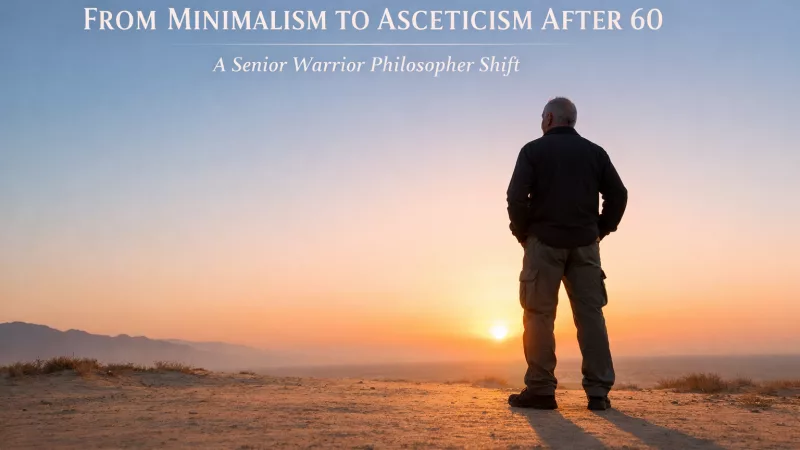Practicing Poverty: A Minimalist Path for Seniors

Practicing Poverty: A Minimalist Path for Seniors
As we grow older, many of us begin to reflect on what truly matters. Retirement, health changes, or simply the desire for peace can spark a longing for simplicity. One powerful way seniors can embrace this is through practicing poverty—a conscious exercise in living with less. Far from being about deprivation, it’s about finding freedom in simplicity, security in frugality, and joy in the essentials.
What Does “Practicing Poverty” Mean?
The idea comes from ancient philosophy and faith traditions. Great thinkers like Seneca encouraged short periods of living with little to prepare for life’s uncertainties. Today, for seniors, it can mean:
- Simplifying meals to the basics.
- Reducing unnecessary purchases.
- Using public transport or walking instead of driving everywhere.
- Living a few days or weeks with only the essentials.
Why It’s Valuable for Seniors
Practicing poverty isn’t about scarcity—it’s about control and choice. Seniors who adopt it often discover:
- Financial peace: Stretching Social Security, pensions, or savings further.
- Emotional resilience: Learning to thrive without relying on “stuff.”
- Health benefits: Simpler foods, more movement, and less stress.
- Spiritual clarity: A sense of gratitude and contentment with what’s already present.
How to Begin Small
You don’t need to go extreme. Start with manageable steps:
- Food: Try a week of simple meals like beans, eggs, or oatmeal.
- Clothing: Rotate only five outfits for a month.
- Technology: Take a weekend “digital fast.”
- Housing: Declutter one room and live with only the basics inside it.
Each small step builds confidence and reduces dependency on luxuries.
The Joy in Less
Many seniors find that by choosing less, they actually gain more:
- More time, since less clutter means less cleaning.
- More freedom, since money worries decrease.
- More connection, since experiences matter more than possessions.
Minimalist living through practicing poverty is not about going without—it’s about living lighter, freer, and truer to yourself.
A Friendly Challenge
Why not try it this month? Pick one small area—food, clothing, or clutter—and spend a week “practicing poverty.” Write down how it feels, what you miss, and what you don’t. You may discover that what you once thought you “needed” wasn’t so important after all.
Final Thought: For seniors, practicing poverty is a gentle way to reclaim freedom, find gratitude, and live with intention. Instead of fearing less, embrace it—and watch how it adds richness to your life.
Your Next Step
- Journal: Keep a simple notebook and jot down your thoughts each day.
- Share: Talk with a friend, grandchild, or neighbor about what you’re trying.
- Reflect: Ask yourself, “What did I gain by living with less this week?”
Remember: this is not about punishment, but about building freedom. Every small step you take makes life lighter and more joyful.





